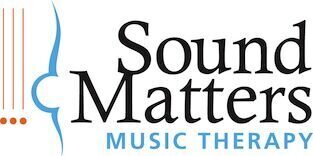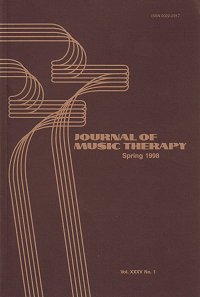Each Monday, I will be writing up a short, non-academic review of an article I’ve found interesting. These articles will be taken from music therapy peer-reviewed journals.
This week, I read “Awareness of Music Therapy Practices and Factors Influencing Specific Theoretical Approaches,” by Byung-Chuel Choi, PhD. I found this article in Journal of Music Therapy, XLV (1), 2008, 93-109.
One reason I chose this article to review today is because in one of my contracts, I am interested in providing my clients and the staff members who work with them directly some music experiences that are aesthetically pleasing. This is a goal area with which I have not given a great deal of thought, up to this point. By this I mean I have not determined that the quality of music I want for the client(s) to perform is my primary goal focus; this is not to say that I believe the quality of my music is not important.
This point of this article was to determine
- Is the adoption of current theoretical approaches contingent on the music therapist’s age, year of practice, attended college, area of practice, major performing medium, or degree of participation in music therapy conferences?
- Is music therapists’ work satisfaction a function of their involvement with theoretical orientations or any other factors?
- Is music therapists’ involvement in music making a function of their theoretical orientations or of any other factors?
- Is music therapists’ emphasis on the aesthetic quality and growth of music a function of their theoretical orientation or of any other factors?
- Is music therapists’ satisfaction with their past education a function of their involvement with theoretical orientations or of any other factors?
- Is music therapists’ desire to expand their theoretical knowledge a function of theoretical orientations or of any other factors? (p. 96-97)
The method of data collection was that of a two-page long survey mailed to a randomly-selected pool of 500 music therapists in the year 2004. Of the 500, 289 responded, and of those 289, 272 of the surveys were considered valid.
The results of the survey showed that 59% of the respondents indicated that their school had focused on a cognitive-behavioral approach. I don’t find this statistic to be a surprise.
According to the results of the study, there was “no significant difference” among questions 1., 2., and 3., but that those respondents who held doctoral degrees use less music in their therapy process than those who held any other type of degree.
I think this study asked a whole lot of questions. I’d be interested in knowing more about why, according to this study, those music therapists with doctoral degrees used less music in their therapeutic process than those who have any other degree. I think the first question would be fun to flesh out as its own study.
I don’t know that reading this article answered my question about my own approach to the use of aesthetics in therapy, but, like I mentioned, I’d gladly read more on this subject.

